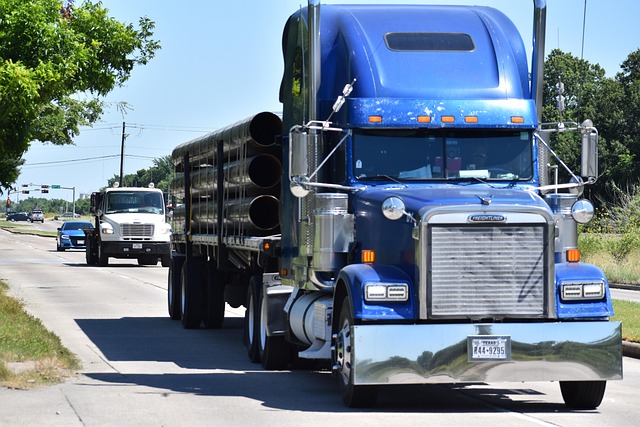Looking to register your car in California? This comprehensive guide walks you through the essential steps, from understanding key requirements and gathering documents to calculating taxes and fees. Learn how to choose between visiting the DMV or using online services, and discover why verifying your Vehicle Identification Number (VIN) with a trusted VIN verifier is crucial for a seamless process.
- Understand California Car Registration Requirements
- Gather Necessary Documents for Car Registration
- Determine Your Vehicle's Tax and Fees in California
- Visit the DMV or Use Online Services for Registration
- Verify Your VIN with a Trusted Tool (VIN Verifier)
Understand California Car Registration Requirements

Before registering your car in California, it’s crucial to understand the state’s specific requirements. These include ensuring that your vehicle meets all safety and emission standards, as well as providing proof of insurance and paying the necessary fees. One key step is to obtain a Vehicle Identification Number (VIN) inspection, which can be done through a certified inspector or, in some cases, via a mobile vin verification service. This process verifies the authenticity of your vehicle’s VIN, a unique identifier crucial for registration and title purposes.
California also requires you to present a valid driver’s license and proof of residency, typically in the form of a utility bill or lease agreement. Additionally, if you’re buying a used car, you’ll need to transfer the registration from the previous owner, usually facilitated by completing Form DVF 14 (Vehicle Ownership Transfer). Understanding these requirements—and potentially leveraging services like mobile vin verification for convenience—will help ensure a smooth car registration process in California.
Gather Necessary Documents for Car Registration

Before you begin the registration process, it’s crucial to gather all the essential documents required by the California Department of Motor Vehicles (DMV). This includes your vehicle’s Registration Application (Form DMV-123), a valid driver’s license or ID card, proof of insurance, and perhaps most importantly, your car’s Vehicle Identification Number (VIN) verifier. The VIN is a unique 17-character code that identifies your vehicle, and you can easily obtain this through a mobile VIN verification service.
Additionally, you’ll need to provide proof of ownership, such as a title or bill of sale, and any applicable fees for registration and/or title transfer. A mobile VIN inspection or verification service can be particularly useful in ensuring that all information is accurate and up-to-date before submitting your application.
Determine Your Vehicle's Tax and Fees in California

Before registering your car in California, it’s crucial to understand the tax and fees involved. The process begins with determining your vehicle’s value, which is calculated using a combination of factors such as make, model, year, mileage, and overall condition. One efficient way to get an accurate assessment is through a VIN (Vehicle Identification Number) verifier. Many online tools and mobile apps, including mobile VIN verification services, offer free or low-cost VIN inspections that can provide you with valuable data about your car’s worth in the California market.
Once you have this information, you can calculate the registration fee, which includes base costs, weight fees (based on the vehicle’s curb weight), and various taxes like sales tax and a vehicular cleaning fee. The California Department of Motor Vehicles (DMV) provides clear guidelines for these charges, making it easier to budget for your car’s registration. Using a mobile VIN verifier can streamline this process, as you’ll have access to precise data that helps ensure you’re prepared for all applicable fees.
Visit the DMV or Use Online Services for Registration

You have two options for registering your car in California: visit a DMV office or use online services. If you prefer a traditional approach, heading to a nearby Department of Motor Vehicles (DMV) field office is still a viable option. You’ll need to bring important documents such as proof of ownership and insurance, along with the registration fee. The staff at the DMV can guide you through the process and ensure that your vehicle meets all necessary safety standards.
Alternatively, California offers online registration services that are convenient for those who prefer a digital solution. Using the state’s official website, you can initiate the registration process by entering your Vehicle Identification Number (VIN) which can be easily verified using a VIN verifier. This method allows for a faster and more efficient registration experience, even offering options for mobile vin inspection or a mobile vin verification service for added convenience.
Verify Your VIN with a Trusted Tool (VIN Verifier)

Before registering your car in California, it’s crucial to verify your Vehicle Identification Number (VIN). This unique 17-character code is a critical component of the registration process and ensures that your vehicle is authentic. One effective way to validate your VIN is by using a trusted vin verifier. These tools are designed to cross-reference your VIN against reliable databases, providing instant and accurate information about your car’s history, including its make, model, year, and potential issues.
Utilizing a mobile vin inspection service or an online vin verifier is convenient and efficient. Simply input your VIN into the tool, and within moments, you’ll gain valuable insights that can help streamline the registration process. This step ensures that your car meets all legal requirements and helps protect against potential fraud, making it a vital part of preparing your vehicle for California roads.
Registering your car in California involves understanding key requirements, gathering essential documents, and navigating convenient registration methods. By ensuring your vehicle’s tax and fees are accurate, using a reliable VIN verifier to check your Vehicle Identification Number (VIN), and visiting the DMV or utilizing online services, you can complete the process smoothly. Remember, proper registration not only complies with legal obligations but also helps maintain California’s efficient vehicle management system.



